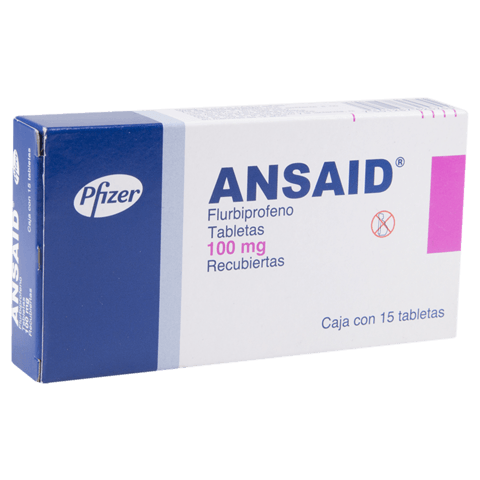Ansaid


A nonsteroidal anti-inflammatory drug (NSAID) is Ansaid (flurbiprofen). Flurbiprofen works by lowering hormones in the body that lead to pain and inflammation. Ansaid is used to treat pain or inflammation brought on by gout, arthritis, tendinitis, bursitis, ankylosing spondylitis, or menstrual cramps. Ansaid can be used for additional conditions not covered in this medication guide. If you are allergic to flurbiprofen or any other NSAID (such as naproxen, ibuprofen, celecoxib, diclofenac, indomethacin, meloxicam, and others), you shouldn't use Ansaid.
Inform your doctor of any of the following to ensure that Ansaid is safe for you:
Whether this medication will harm an unborn child is unknown. If you are pregnant or intend to become pregnant, let your doctor know. At any point during treatment, NSAIDs can lead to stomach and intestine bleeding and ulcers. If you regularly take Ansaid, your doctor will want to review your progress when you see him or her. To check for unintended effects, your blood and urine may be tested.
The gastrointestinal tract quickly absorbs ansaid, and peak plasma concentrations happen 1 to 2 hours after administration. Ansaid has a bioavailability of about 100%.
99% of Ansaid's plasma protein binding is to albumin.
Cytochrome P450 enzymes, particularly CYP2C9, metabolize flurbiprofen in the liver to create a number of metabolites, the two most important of which are 5-hydroxyflurbiprofen and 3′-hydroxyflurbiprofen.
Flurbiprofen has an elimination half-life of 1.3 to 4 hours.
As metabolites and conjugates, ansaid is eliminated in the urine. The amount of flurbiprofen that remains unchanged in the urine after administration is less than 1%.
Ansaid side effects could include:
If you experience any of the following:
Ansaid Tablets should be taken daily in doses of 100 to 200 mg. According to each patient's unique treatment objectives, patients should receive the lowest effective dosage for the shortest amount of time (see WARNINGS).
If you experience nausea, drink milk or eat food first.
The typical adult dosage for treating rheumatoid arthritis is 100 to 200 mg daily in divided doses.
The typical adult dosage for osteoarthritis relief is 100 to 200 mg daily in divided doses.
The typical adult dosage for menstrual cramp relief is 50 to 100 mg per day.
Ansaid is prescribed to treat the symptoms of osteoarthritis and rheumatoid arthritis.
An overdose of Ansaid is unlikely to result in symptoms that could be fatal. In the event of an overdose, stop taking the medication, treat symptoms, and put supportive measures in place. Monitoring of the fluid and electrolyte balance is necessary.
Store at 68° to 77°F (20° to 25°C) Please refer to USP Controlled Room Temperature.] Defend against moisture. As specified in the USP/NF, dispense in a tightly sealed, light-resistant container.









